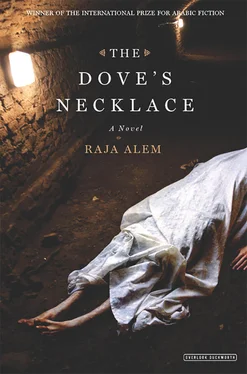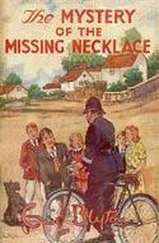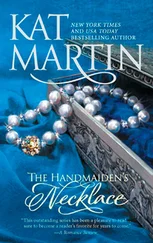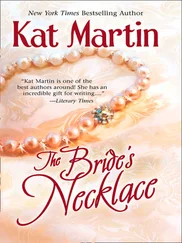Aunt Etra haunted his dreams. He always saw her in that final scene: she’d dared to stand up to his father at his sister Fatima’s funeral. The thought made color drain from Nasser’s face, and a smell of blood wafted into his office from the past, the same smell that his sister Fatima’s body gave off when it was wrapped in the white burial shroud. Denuded by that white shroud, all that could be seen of her body was the protrusion of her breasts, which bore into Nasser’s consciousness. He was five at the time and the events of that day had faded. He could remember little other than the smell of heat mixed with peril. Those breasts were engraved upon his memory. They were crowned with inch-wide dark circles that seemed to float on their surface in that dusty street in the Martyrs’ Quarter in Ta’if. Nasser had watched the astonished male eyes appearing, multiplying, orbiting those two dark circles. His father scrambled past them, pulling off his white robe as he ran, and threw it over Fatima’s naked body. As if possessed, he wrapped her up and dragged her into the house. He shoved her through the door, and with the same movement tore his robe off of her and flung it aside in disgust. Fatima was getting to her feet when his father seized the first thing he could find, a coffeepot: whack. Nasser had never been able to shake the sight of the coffeepot spout piercing Fatima’s forehead, the channel of blood that suddenly spurted out over her face and neck, his father’s threatening finger: “Your sister died of an asthma attack …” His father burned that robe, the one he used to wear for holidays and Friday prayers.
A doctor relative of theirs filled out the death certificate, his eyes lowered, embarrassed and sympathetic to the father’s plight. He’d had the story before coming: “The father who’d refused the neighbors’ son who was smitten with his daughter; the cousin who, as soon as he’d heard she had a love-interest, washed his hands of his betrothed; and the young woman herself and her giving, playful, thrumming heart that sent her, naked and crazy, out into the middle of the street.” The neighbors played their parts perfectly in burying the scandalous affair: they came to the house to mourn with the mother and father, telling countless stories of deaths caused by asthma, or insect bites and the like. You’d be forgiven for thinking the girl had simply forgotten to keep breathing. Their deeply sorrowful expressions and their commiseration ate at Nasser’s young sisters, for whom Fatima’s death might as well have been the death of their own reputations and any chance they might have had for a decent marriage or life. Only Nasser’s aunt Etra swore she’d never set foot in that house again. She marched down to the police station and reported what had happened with the coffeepot, but was met with nothing but pitying looks. She realized she’d have an easier time getting into the Guinness Book of World Records than penetrating those thick, almost armor-plated heads and their ideas about honor.
That was four decades ago now. The climax of the plot was his own father’s death: it wasn’t grief for his daughter that killed him, rather the tragedy of his lost reputation. Nasser grew up an orphan, hostage to that crippled reputation, and he seized the first chance he got to flee to Mecca, to escape the sour blood that stained the threshold of their house. Years later, when the Lane of Many Heads case came across his desk, he felt compelled to discover the identity of the body and the person who’d flung it out into the street. He wasted no time in getting down to the task.
Halima’s affectionate gaze pierced through his insignia straight to his heart, to the cowering child still grieving the death of his sister. Sweat began to trickle between his shoulder-blades and down his temples.
“Your son Yusuf is a suspect,” said Nasser hoarsely, trying to regain the menacing aura he’d always relied on for strength and protection. It didn’t stop her from pitying him. He needed one of her potent coffee blends, she thought sympathetically. She picked one out, and seeing that the samovar had boiled, she polished her tiny coffee cups, stirred up the soul of her copper coffeepot, and poured out her encyclopedia of the neighborhood:
“Yusuf gets scared easily, that’s all. He caught a glimpse of death on his doorstep and ran away. My son eats, sleeps, and breathes history; he graduated from Umm al-Qura University with honors. Then they gave him an important writing job on the Umm al-Qura newspaper.” Nasser let her continue. He listened to the ceiling fan whirring softly above; the aroma of Halima’s coffee evoked the love he felt toward Mecca. “This is the sacred womb whose honor I swore I’d protect,” he thought to himself. A pinch of ginger, thought Halima.
“Mushabbab’s one of his friends. That boy’s all about Mecca and its secrets. Ever since we’ve known him, he vanishes every so often and comes back with some discovery.” The coffee boiled over, and she moved the pot to where hot embers lay beneath a layer of ash.
“As for the girls of the Lane of Many Heads, ‘O fire, be cool and gentle!’ The angels still smile on them. They each live in their own little world.
“Aisha and Azza, goodness me. Whenever I visit Aisha, I see her sitting clammed up with her computer in that tiny room of hers — as if it’s her entire world! And Azza, if it weren’t for me distracting her with my fabrics from time to time, she’d have long since drowned in her paper and charcoal! None of the girls in the Lane of Many Heads has done anything to deserve murder or punishment. If you give me a Quran, I’ll swear to you that Yusuf wouldn’t hurt a fly. His entire life is paper and ink. The only legacy he’s going to leave is the stack of papers that’s rotting in the old vat on the roof, getting pecked at by crows …”
Confiscated Documents
April 6, 2000
A Window for Azza
Azza was the first of my miracles. I wrote to her, and she made me fall in love with her.
Why do I love Azza?
I watch her; she hides her secrets in an old radio at the bottom of the staircase that leads up to the roof. She takes out the very first scrap I ever sent her when I was nine years old. It was a drawing of a triangle-shaped girl with hair like seven violin strings, freshly cropped. That was the day Azza first picked up a charcoal stick and tried to talk to the girl. With three strokes, she turned out another girl just like the first, and I followed her with another, this time with shorter strokes for hair. The sheet of paper flew back and forth between us, but then she surprised me with a boy, breaking my stride. When she said his name was Yusuf, I felt her touch for the first time, felt there was nothing more to say. There was nothing that could express transgression and passion like the appearance of that boy.
If it weren’t for Azza, I’d have never learned how to make love. I experienced my first orgasm at that precocious age. Azza was every woman, every girl I met.
I realized then that the boy had liberated the girl — as if she were a dove — so he could massage her neck and break into the world of women that lay behind closed doors. The dove never looked back, not even on the day I took it out from its nest inside the busted radio and wrote “Azza has the eyes of an angel” between its eyes with my finger.
At these words of romance, the sheet crumpled and the girl’s heart shrank back, and I could hear her laughing as she said, “If I could undo the collar and cut the girl’s hair that’s tied to my tail, I’d have swallowed the boy and flown away.”
Yusuf’s enigmatic diary was laid out in a pile in front of Detective Nasser, who was slowly making his way through it. Part of it dated from 1987 onward, but another part covered the period from 355–1120 AH (966–1708 AD). They’d recovered it from inside the water vat on Halima’s roof. It was prefaced with a report by the expert who’d examined all the episodes and their arrangement. The report ended, “The defendant Yusuf refers to his memoirs as ‘windows,’ and he divides them into two sections: ‘windows for Azza,’ in which he describes the alley to his beloved, and ‘windows for Umm al-Qura,’ in which he dredges up incidents from history.”
Читать дальше












